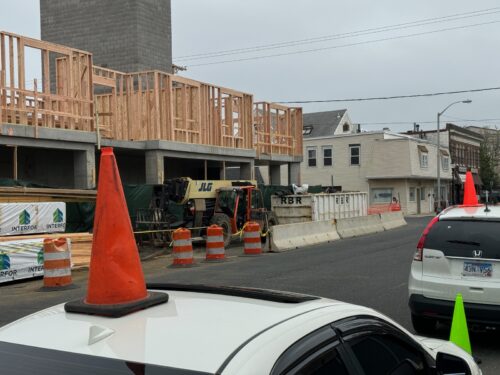Monmouth County’s last holdout, Middletown Township, is undergoing a revaluation this year, its first full reset of property values in 23 years.
Unlike the process used in Red Bank, which recently completed a reassessment (basically, a drive-by look at each property, bolstered by comp sales data), inspectors will attempt to enter all 23,000 properties, including individual townhomes.
As in Red Bank, though and Long Branch, and just about any town that goes through value-resetting process these days the potential outcomes have property owners on edge. And roughly 50 of them gathered for a neighborhood meeting at the River Plaza Elementary School last week and brought with them anxious questions about market conditions, how to dispute appraisals, and of course, taxes.
But the recent “softening market” in home sales is good timing for the township, said Neil Rubenstein, of Realty Appraisal Company, based in West New York. Mayor Gerry Scharfenberger sought to assure residents that the town gets no additional money from the revaluation alone, because the tax rate is adjusted to reflect the new property tax base. If assessments double, in other words, tax rates are halved.
Scharfenberger said the town resisted the Monmouth County Board of Taxations request for a reval as long as it could without taking legal action. He also stressed that the bulk of the municipal levy 63 percent goes toward the school budget, not municipal government, which gets only 19 percent.
Home inspections, which began last fall and run until notices go out in November, are taking place on a random schedule. If nobodys at home, the inspector will leave a doorknob card to arrange an appointment,
Rubenstein said.
You may come home to find the appraisal company’s rep measuring your property, but most pictures will be taken from the sidewalk. Were not going to jump over any fences, Rubenstein said.
If the real estate market should change dramatically in the five years after the revaluation is completed, the township has already contracted for adjusted reassessment, not revaluation.
To dispute your appraisal, you can first request an informal hearing with the appraiser, then a hearing in Freehold with the county tax board (for which the deadline is April 1). In rare cases, Rubenstein said, an appeal goes to the state level. To win, though, you’ll need to have new information such as an easement or a correction to the lot size; just saying that you disagree wont get you very far. It has to be something factual that affects value, Rubenstein said.
Typically only about a tenth of residents challenge their appraisals, he said.
LINDA G. RASTELLI






















